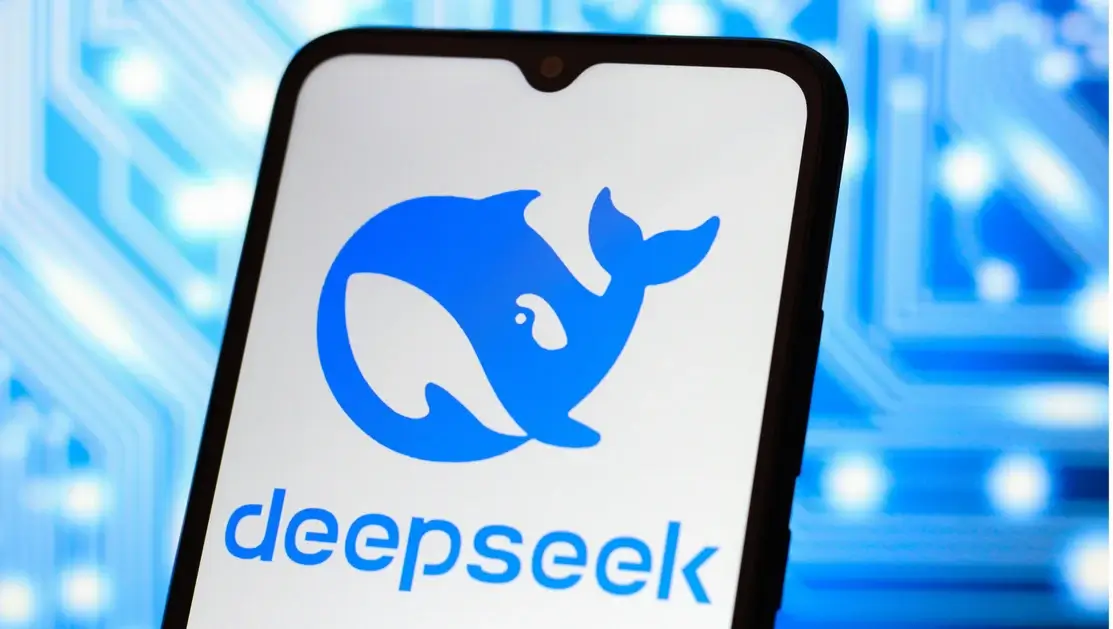Chinese AI company DeepSeek AI has unveiled a significant upgrade to its flagship AI model, DeepSeek-V3.1, marking a leap forward in domestic AI capabilities and a step away from reliance on foreign technology. The updated model is specifically optimized to work with soon-to-be-released, next-generation Chinese-made semiconductor chips. This move aligns with China's broader strategy to foster a self-reliant technology ecosystem amid increasing restrictions on advanced chip exports.
The DeepSeek-V3.1 incorporates the UE8M0 FP8 precision format, which is designed to work efficiently with domestic chips. While the company hasn't revealed the specific chipmakers it will be supporting, this signals a proactive approach to ensuring long-term viability within China's rapidly evolving semiconductor industry. The FP8 format is particularly important because it allows AI models to use less memory while achieving faster processing speeds. This efficiency is critical for large-scale AI applications where computational power and cost-effectiveness are often limiting factors.
DeepSeek-V3.1 also boasts a hybrid inference structure, enabling the model to switch between reasoning and non-reasoning modes. This flexibility allows users to tailor the model's operation to specific tasks, optimizing performance and efficiency. A "deep thinking" toggle has been added to the DeepSeek app and web platform, providing users with control over how they engage with the model.
The release of DeepSeek-V3.1 follows two prior enhancements: the R1 model upgrade in May and a V3 update in March. DeepSeek's commitment to cost-efficient solutions is well known, as their models compete with Western models like OpenAI's ChatGPT, but with significantly lower operating costs. DeepSeek-V3 outperformed competitors such as Meta's Llama 3.1, OpenAI's GPT-4o, and Alibaba's Qwen 2.5 on independent benchmarks while offering more affordable pricing for developers and businesses. In January 2025, DeepSeek's AI assistant even surpassed ChatGPT on Apple's App Store.
DeepSeek's focus on domestic chip compatibility indicates an alignment of its AI models with China's growing semiconductor ecosystem, which is crucial as Beijing seeks alternatives to U.S. technology amid export restrictions. This push for technological independence is further fueled by the fact that the U.S. is providing China with reduced-performance chips.
The company has implemented innovative solutions, including Multi-head Latent Attention (MLA) to reduce memory bottlenecks and Group Relative Policy Optimisation (GRPO) to streamline reinforcement learning. DeepSeek operates with fewer resources than its competitors, using less than 100,000 H100 GPUs, while Meta will deploy 1.3 million GPUs by late 2025.
DeepSeek is also adjusting its API pricing model, starting September 6, to reflect growing demand from developers seeking cost-effective alternatives to Western platforms. By aligning its AI technology with China's emerging chip ecosystem, DeepSeek is positioning itself as a technological innovator and a strategic player in Beijing's push for semiconductor independence.
While DeepSeek has not revealed which Chinese firms will be supplying the next-generation AI chips, speculation is swirling around companies like Huawei Technologies, Cambricon Technologies, Moore Threads, Hygon Information Technology, and MetaX Integrated Circuits. Huawei's 910D and Cambricon's Siyuan 690 chips are potential candidates. Despite these advancements, challenges remain. DeepSeek's R2 model launch has faced delays due to issues encountered while training the model using Huawei's Ascend chips. This forced a compromise where Nvidia hardware is used for training, while Huawei chips are used for inference tasks.

















